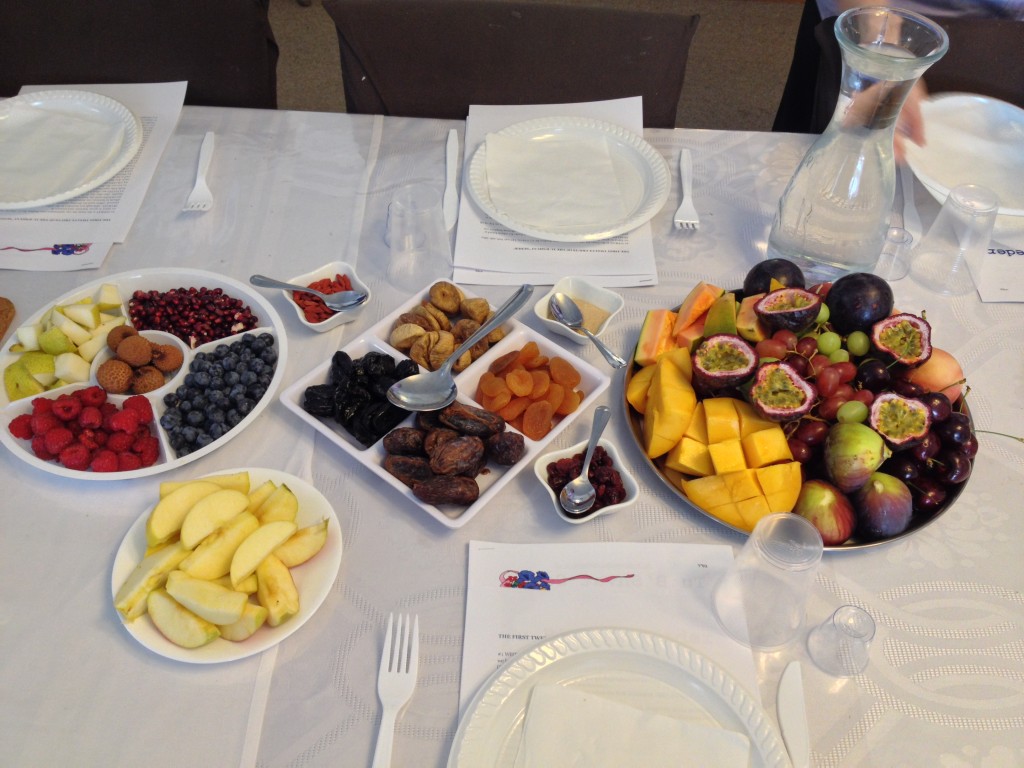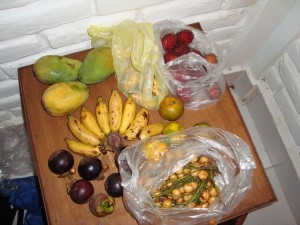Parshas Terumah: It’s Okay to Ask for Help
In Western society today, being tough and independent are qualities that are praised. We expect men to be macho and strong and not to cry. We even hear songs saying things like, “big girls don’t cry.”
It is hard to allow oneself to become vulnerable. By letting down our guard, we open ourselves up to attack and criticism in the places where we are weakest. Sadly, in modern society, there is a good chance that we may just be attacked if we do so.
But this is not the way of Judaism. Judaism is a religion of compassion and love, as we learn from our forefather Abraham. In Judaism, we should be able to open ourselves up and meet with comfort from others, not criticism.
Take for instance the emotion of grief. Grief as an emotion is inherently vulnerable because we are already suffering a loss. Yet, modern society seems to dictate that we have to be strong. We are told to “accept it,” to “move on,” and, if we cry at all, we are expected to quickly wipe our tears away. Most jobs today do not give time off to deal with grief – they expect you back at work as scheduled. Judaism, on the other hand, embraces grief and its natural progressions. Familial losses require one to sit shiva for a whole week, then to follow certain mourning rituals for the first 30 days and first year following the loss.
That is because in Judaism, vulnerability does NOT equal weakness. If anything, vulnerability is yet another gift from Hashem. Just as there are poor people in the world to give us the opportunity to help them through giving charity, so too each and every one of us has vulnerable moments to allow all the others to give them strength and love, caring and compassion.
Sadly, even asking for help these days is seen as a weakness! (According to the book “Men are from Mars, Women are from Venus,” men have an especially hard time with this, but it seems to us that it more likely stems from societal norms.) Asking for help means you aren’t independent enough to do it on your own. And in modern society this is seen as a fault.
But even Moses had to ask for help sometimes, and he was certainly not a weak man. Take for instance, the building of the menorah in this week’s parsha. We see that Moses learned on Mount Sinai how to construct the menorah. But when Hashem explained its construction to him, Moses didn’t understand. So he asked for more explanation. G-d then showed him a vision (made of fire) of what the golden menorah should look like. Still, when it came time to construct it, Moses still didn’t understand! So, as the Midrash says, Moses threw the gold into the fire and G-d himself constructed the menorah. Moses was not afraid to ask for help.
So too us as Jews. We must always be able to ask for help from our fellows. It is not a sign of diminishment or weakness – it is actually a sign of humility and strength. And, as Jews, if others open up to us and ask us for help, it is our job to give help, compassion, and love.
Shabbat shalom!
Read more on Parshas Terumah: Doing Things the Hard Way, Procrastinating, and Overcoming Laziness
Read More
 How to Keep Kosher While Traveling
Finding Food: There are three types of places you may find yourself:
Developed countries like: Canada, United States, and Australia. In most developed Western countries you can buy almost anything in a supermarket aside from meat and dairy products. A vegetarian and vegan self-caterer would have no...
How to Keep Kosher While Traveling
Finding Food: There are three types of places you may find yourself:
Developed countries like: Canada, United States, and Australia. In most developed Western countries you can buy almost anything in a supermarket aside from meat and dairy products. A vegetarian and vegan self-caterer would have no...
 How to Keep Shabbat Anywhere
Toilet Paper: Remember to tear toilet paper. (Especially in India!!!)
Lights: Leave the bathroom light on. For high-tech places where you use your entry card to keep the lights on, I just leave the room before Shabbat and forget my key and leave the lights and air-conditioning on. I tell them at the front desk...
How to Keep Shabbat Anywhere
Toilet Paper: Remember to tear toilet paper. (Especially in India!!!)
Lights: Leave the bathroom light on. For high-tech places where you use your entry card to keep the lights on, I just leave the room before Shabbat and forget my key and leave the lights and air-conditioning on. I tell them at the front desk...
 Camping on Shabbat
How to: Build an Eruv, Bake Bread, go to the Toilet, and More
A Practical Guide to Camping Over Shabbat.
Camping on Shabbat requires extra preparation and effort, but is not that difficult once you get the hang of it – and Shabbat can be a highly rewarding experience when spent in nature. This book will show you how...
Camping on Shabbat
How to: Build an Eruv, Bake Bread, go to the Toilet, and More
A Practical Guide to Camping Over Shabbat.
Camping on Shabbat requires extra preparation and effort, but is not that difficult once you get the hang of it – and Shabbat can be a highly rewarding experience when spent in nature. This book will show you how...
 “The jungles of Borneo, Mt Kilimanjaro in Africa, a Thai boxing camp in Thailand… this guy manages to keep kosher and observe Shabbat.”
I have been traveling since 1997 and never really stopped. My house is my backpack where I have everything I need; clothing, a tooth brush, juggling balls, and a pair of small Tefillin.
People...
“The jungles of Borneo, Mt Kilimanjaro in Africa, a Thai boxing camp in Thailand… this guy manages to keep kosher and observe Shabbat.”
I have been traveling since 1997 and never really stopped. My house is my backpack where I have everything I need; clothing, a tooth brush, juggling balls, and a pair of small Tefillin.
People...










